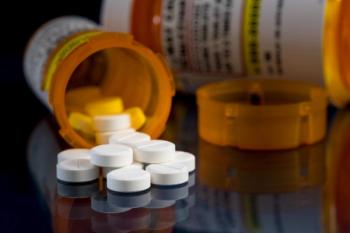
- Vol 39, Issue 11
Survey Finds 1 in 7 Physicians Uses Alcohol or Drugs on the Job to Cope With Stress
"We must put mental health on par with physical health and make it a basic human right, an indicator of overall health, and an industry standard.”
One out of seven physicians admitted consuming alcohol or controlled substances while working to cope with occupational stresses, according to a new survey.
The finding was derived from the study “State of Mental Health: American Healthcare Workers Report,” which was commissioned by Edwards, Colorado-based All Points North (APN), a recovery and rehabilitation center that specializes in treating health care workers. The survey of 1000 health care workers found that 21% of physicians—more than 1 in 5—consumed alcohol or controlled substances multiple times a day and 17% reported using at least once a day.
The results indicate “high levels of substance abuse, an acute mental health crisis, and stigma within the healthcare industry,” APN founder and CEO Noah Nordheimer said in the report.
Substance Use
The survey, which was conducted in July 2022, found 1 in 5 (20%) respondents had checked into a rehab or detox facility in the prior 3 months, but 14% said they did not want to admit they had a problem. Reasons for not seeking help included being overworked and not having the time (32%), concern that colleagues or family would judge them (23%), fear of getting their license revoked (23%); and not knowing where to begin and thinking the system is too difficult to navigate (20%).
The study found a difference between men and women, with 58% of male health care workers reporting they were at their breaking point or were looking for a new job because of stress, burnout, and trauma, compared with 45% of women. Male health care workers reported struggling with substance misuse more than their female counterparts. Men were more likely to use their positions in health care to acquire controlled substances than women (21% versus 4%).
Men also were more likely to consume alcohol or controlled substances while at work (18% versus 4% of women) and men were more likely to consume alcohol or controlled substances up to 12 hours before their shifts (44% versus 17% of women).
Pandemic Stress
Health care experts generally agreed workers were facing dangerous levels of burnout before COVID-19 spread, but the pandemic made things worse. As such, 40% of workers said they felt anxiety or dread about going to work, 49% said they were at their breaking point or looking for new work because of job stress and trauma, and 64% said the US Supreme Court decision overturning the Roe v Wade abortion rights case increased their stress levels or caused them to feel betrayed.
“The wellbeing and mental health of health care workers has been dramatically impacted by the pandemic, with many of them seeing more pain and death than ever before,” Nordheimer said in a news release. “This frequency and intensity of exposure is causing an unprecedented amount of trauma and stress, leading to high levels of burnout. The behavioral health care industry has been slow to innovate to meet the growing need for mental health care, oftentimes treating it as an accessory to health care. We must put mental health on par with physical health and make it a basic human right, an indicator of overall health, and an industry standard.”
Read more:
Articles in this issue
about 3 years ago
Covering the Basics: LGBTQ+ Terminologyabout 3 years ago
The Importance of Avoiding Implicit Bias in Advocating for Patientsabout 3 years ago
Psychiatrist Humility and Patient Empowermentabout 3 years ago
Advances and Challenges in Adult ADHDabout 3 years ago
THE QUEST: Nepal Lets You Reach for the Majesty of the Summitabout 3 years ago
Psychiatric Times™ Conference: Clinical Pearls for Treating MDDabout 3 years ago
Chemistry LessonNewsletter
Receive trusted psychiatric news, expert analysis, and clinical insights — subscribe today to support your practice and your patients.





